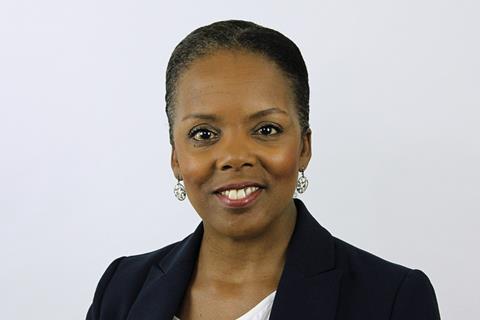Immigration partner, London

I was inspired to enter the legal profession after the racism my family experienced. I grew up on a council estate in Peckham in the mid-1980s and watched the news about the riots in Brixton, Peckham and Tottenham. The police response was appallingly slow and I remember feeling angry that the way we and others were being treated was due to the colour of our skin. I resolved to become a lawyer so that I could fight the system from within and make change. The more we interact with each other the more we should respect each other’s differences. That’s always been my goal.
The Black Lives Matter (BLM) campaign from last year achieved something that I had not seen before during my lifetime. It got everyone talking about racial injustice and people of all colours came out to fight for the cause. Personally, I have always believed my life matters but the growth of the BLM movement has renewed my commitment to helping those around me to understand the issues better and become allies of anti-racism. I am proud of how my firm Kingsley Napley responded by publicly speaking out against what happened, as well as organising education sessions for staff and clients, fundraisers for anti-racism charities and by strengthening its resolve to improve diversity in its recruitment effort and as a strategic business priority. It should be said that Kingsley Napley, in my experience, is incredibly supportive when it comes to diversity – and it did not start with the events of last year.
The legal profession – from City firms to barristers’ chambers – has undoubtedly recognised it needs to up the pace of change since BLM. Outreach is improving, interview processes are evolving, bias training is being rolled out and some firms are even setting targets to achieve change within their population. This is partly, of course, down to clients now demanding evidence of diverse teams. But it is vital that we also see cultural change within organisations to ensure diversity and inclusion is truly embedded. D&I is more than a box-ticking exercise.
'The most significant change is the government application fees. These are often a barrier to people who can’t afford to pay and find themselves in jeopardy. I heard this from many of those caught up in the Windrush scandal'
The barriers for black people entering and progressing in the legal profession are education, ambition, attitudes and a lack of genuine support for diversity. To address these we need to offer solutions at every stage of the chain. For example, offering more paid work experience to those who might otherwise be put off considering a career in law and contextualised recruitment for those who apply, through to providing structured mentor programmes, anti-racism training for all staff in an organisation and greater accountability for senior leaders on D&I. There is no silver bullet. There are many actions required and it will continue to take time to see progress. I used to think targets were not the answer but given the slow pace targets are in fact the only answer.
My advice to aspiring young black solicitors is to work hard, believe in yourself and find good sponsors and mentors. This is the same advice I would offer anyone wanting to be a lawyer actually – you need drive, confidence, ambition and supporters to succeed. I am proof that the law is open to all if you push at the door.
I started out thinking I wanted to be a criminal lawyer but found I enjoyed asylum and human rights-type work more. I had undertaken an internship in the US doing death penalty work and was inspired. This led me to my current field of immigration. I do a balance of corporate and personal immigration work now. Despite being at a City law firm, I have been able to continue to make a difference – for example, I helped several people involved in the Windrush scandal. I also provide advice on a pro bono basis.
Having been in the profession for more than 20 years, my team often roll their eyes when I start a sentence with ‘in my day’. The most significant change is the government application fees. These are often a barrier to people who can’t afford to pay and find themselves in jeopardy. I heard this time and again from many of those who were caught up in the Windrush scandal – they simply could not afford to apply for British citizenship.































No comments yet